Sprint Planning
powered by your data
Make data-driven decisions without all the manual spreadsheet math.
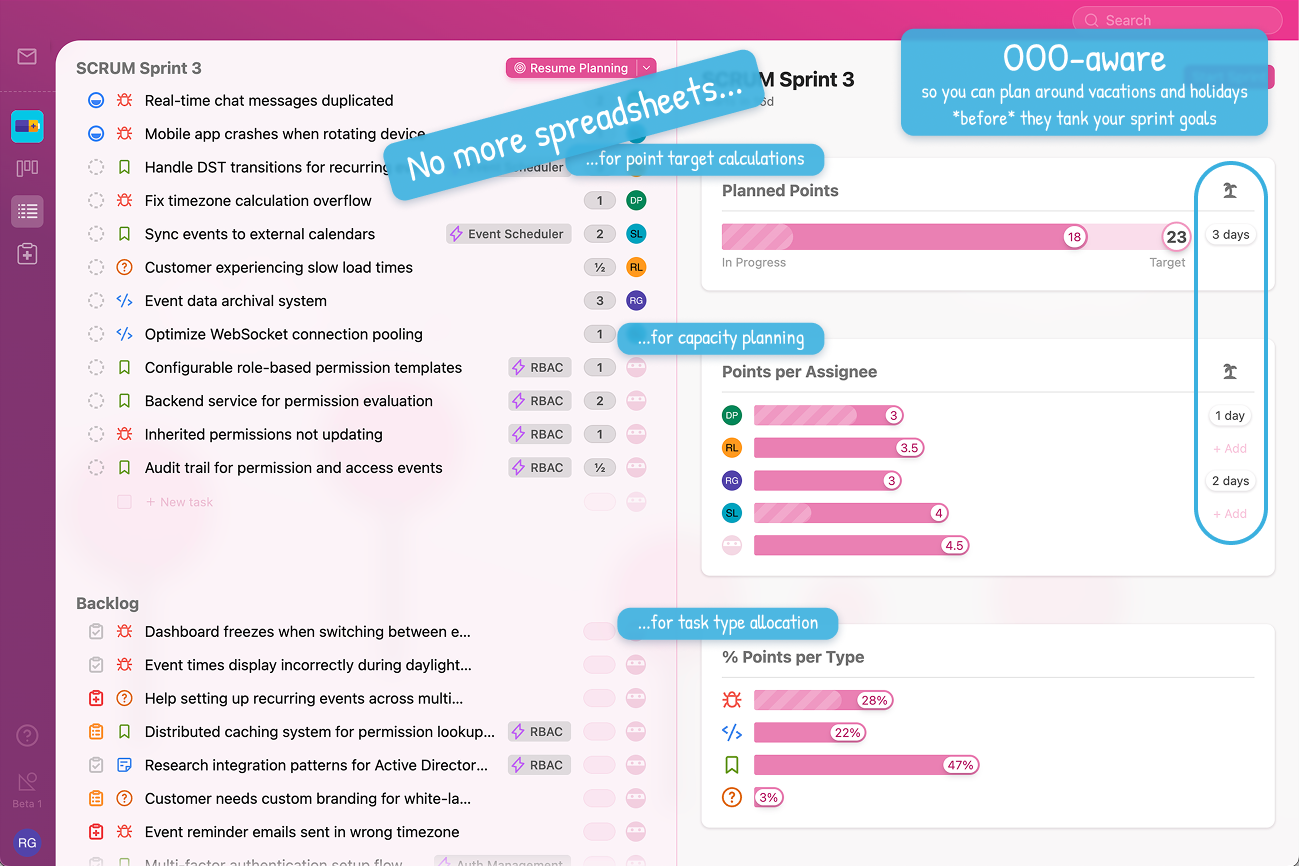
Planning Made Intelligent
Everything you need for smooth sprint planning, built directly into your workflow.

Automatic Point Target Calculations
Know exactly how much work your team can handle based on historical velocity.
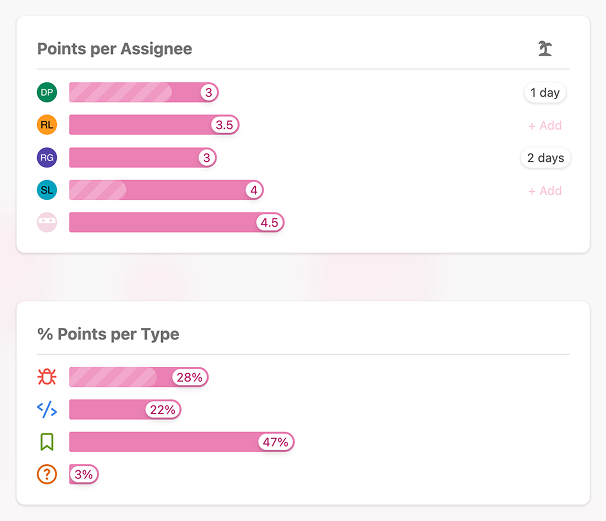
Frictionless Capacity Planning
See point distribution across team members and task types to ensure sprints are properly balanced.
Native Out-of-Office Tracking
Never forget about upcoming holidays or who's on vacation.
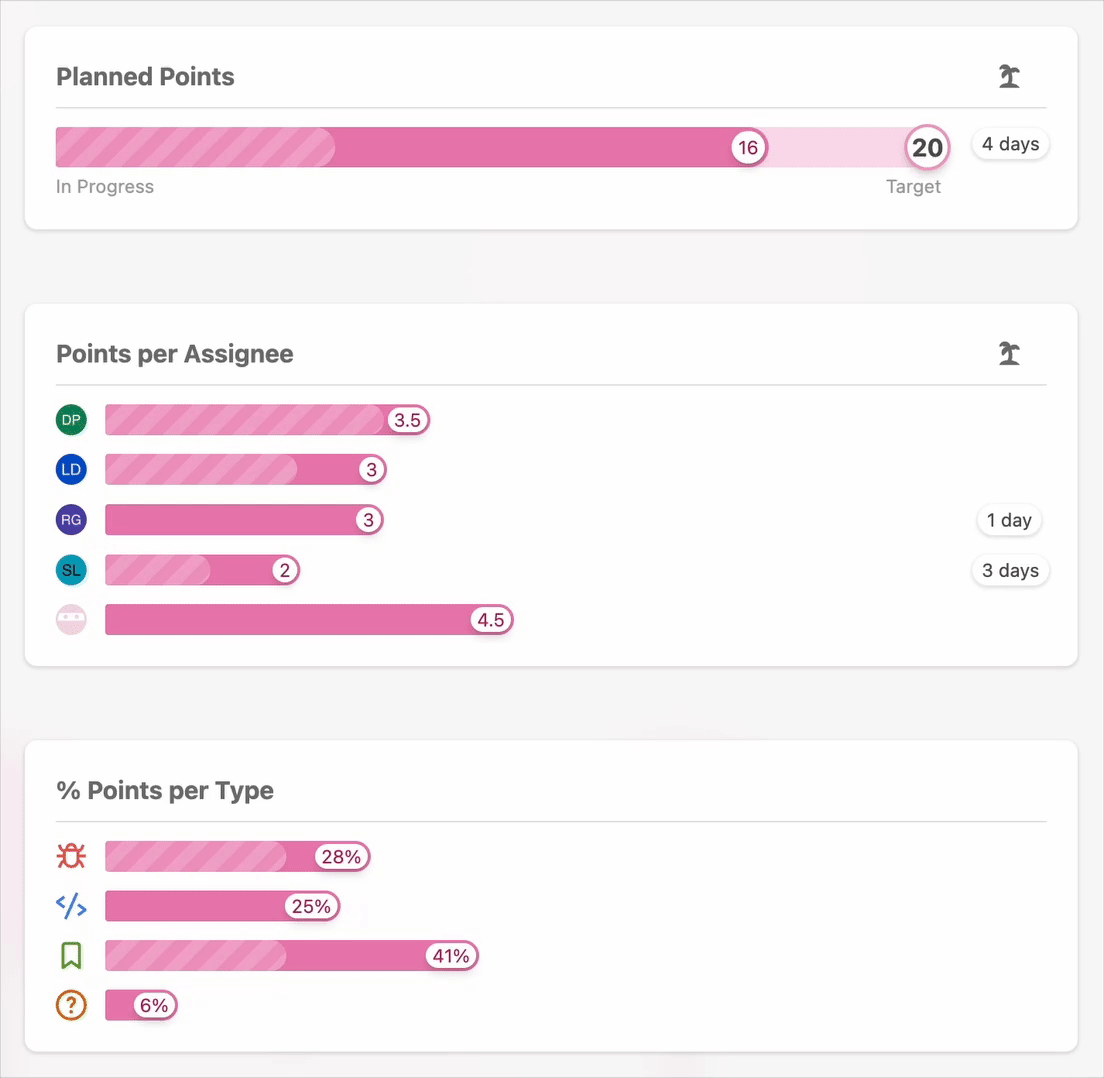
Realtime Updates
All calculations update automatically as you pull work in and out, add estimates, and assign tasks.
And there's more
where that came from.
Momentum was built to solve the daily workflows that bog teams down — in one platform that talks to itself.
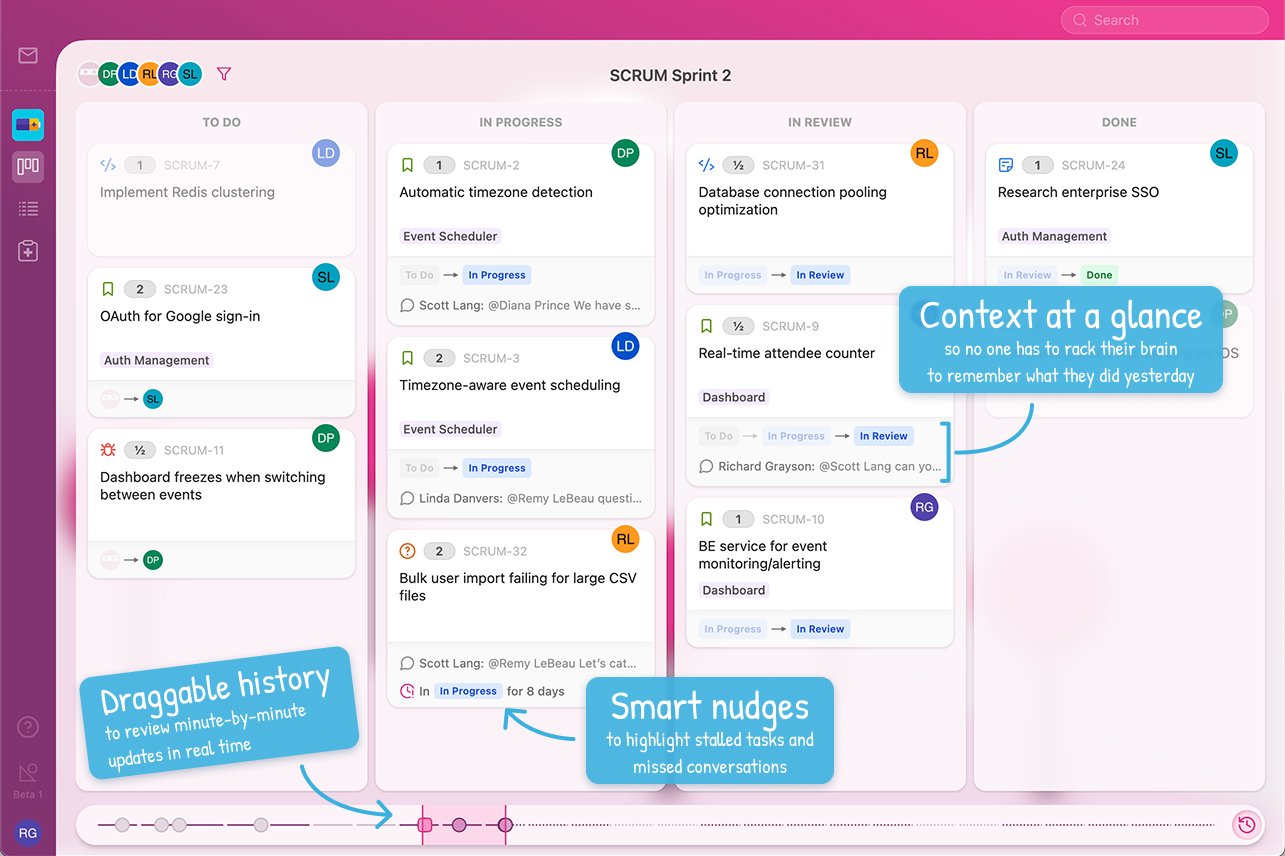
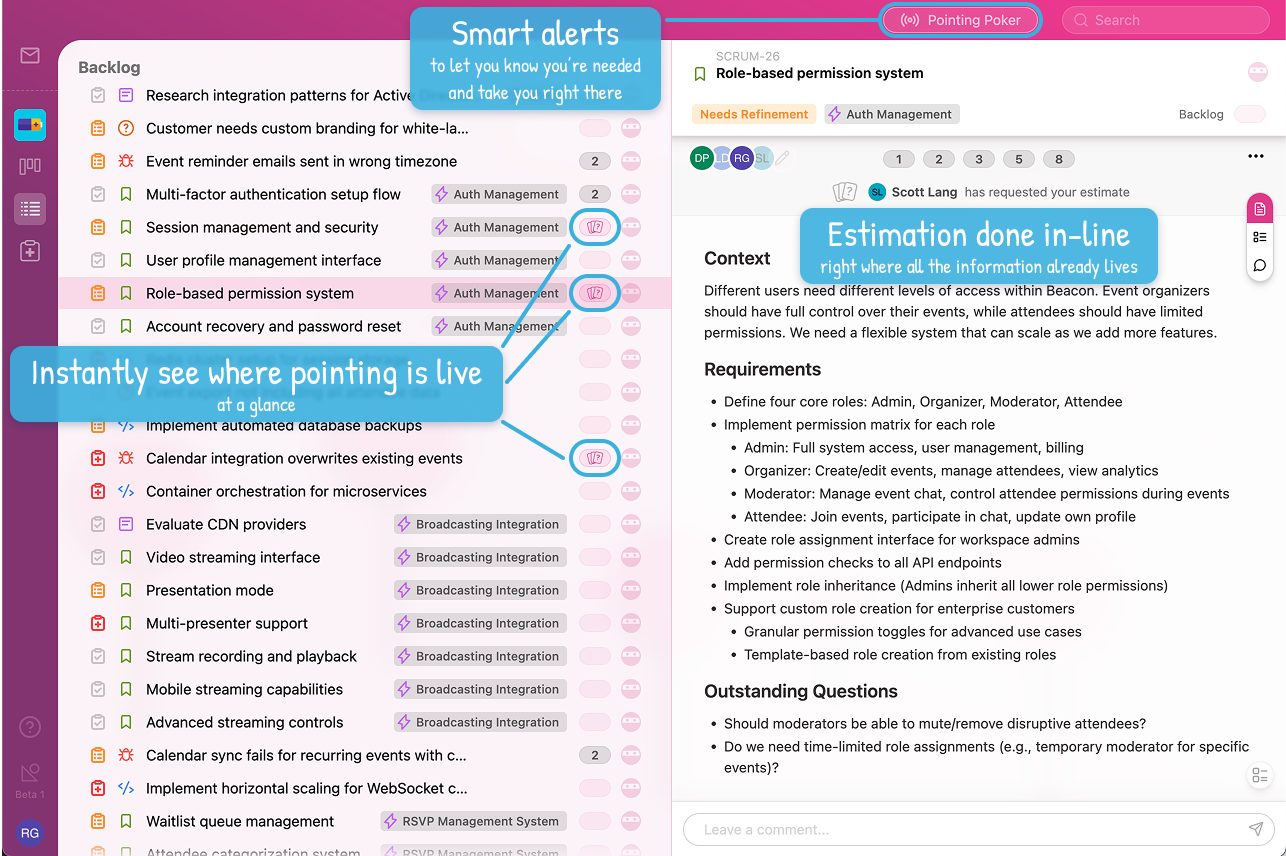
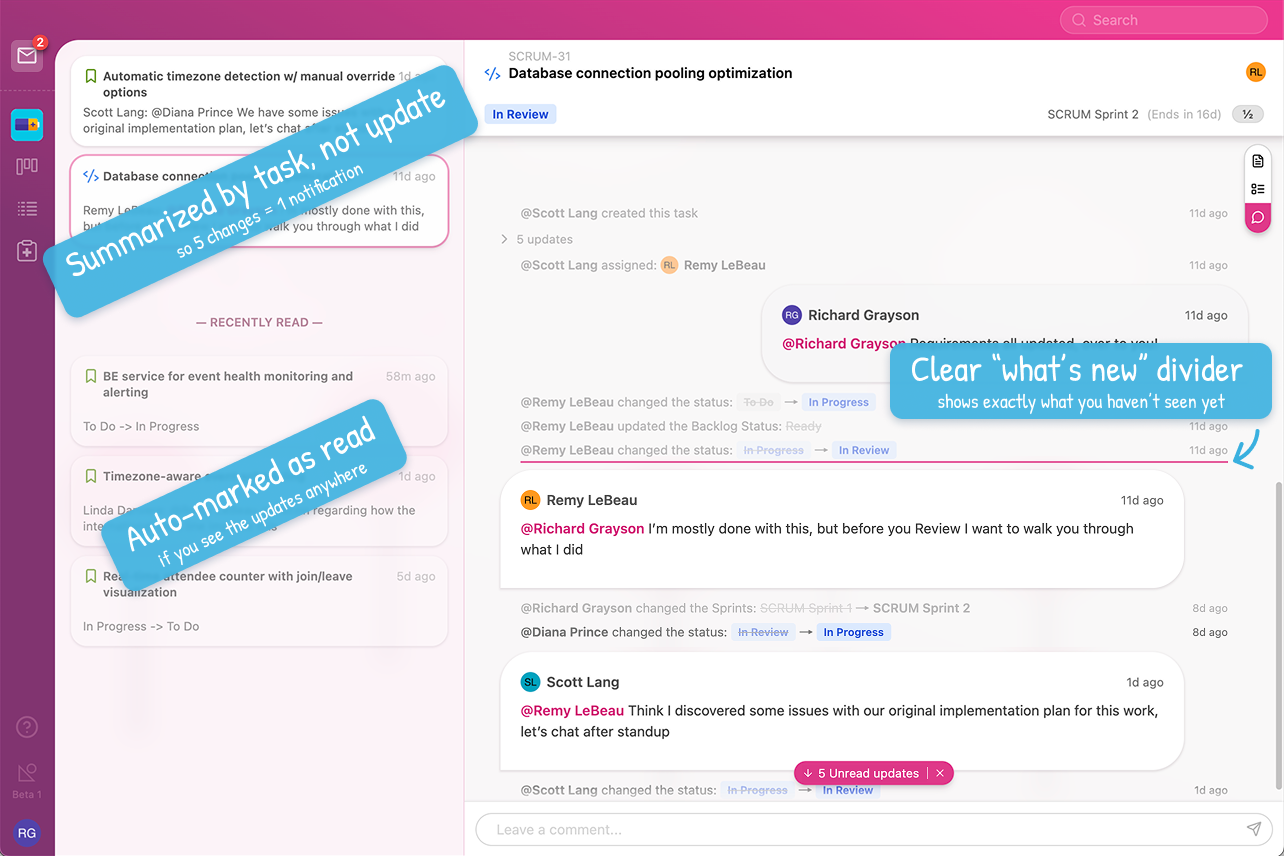
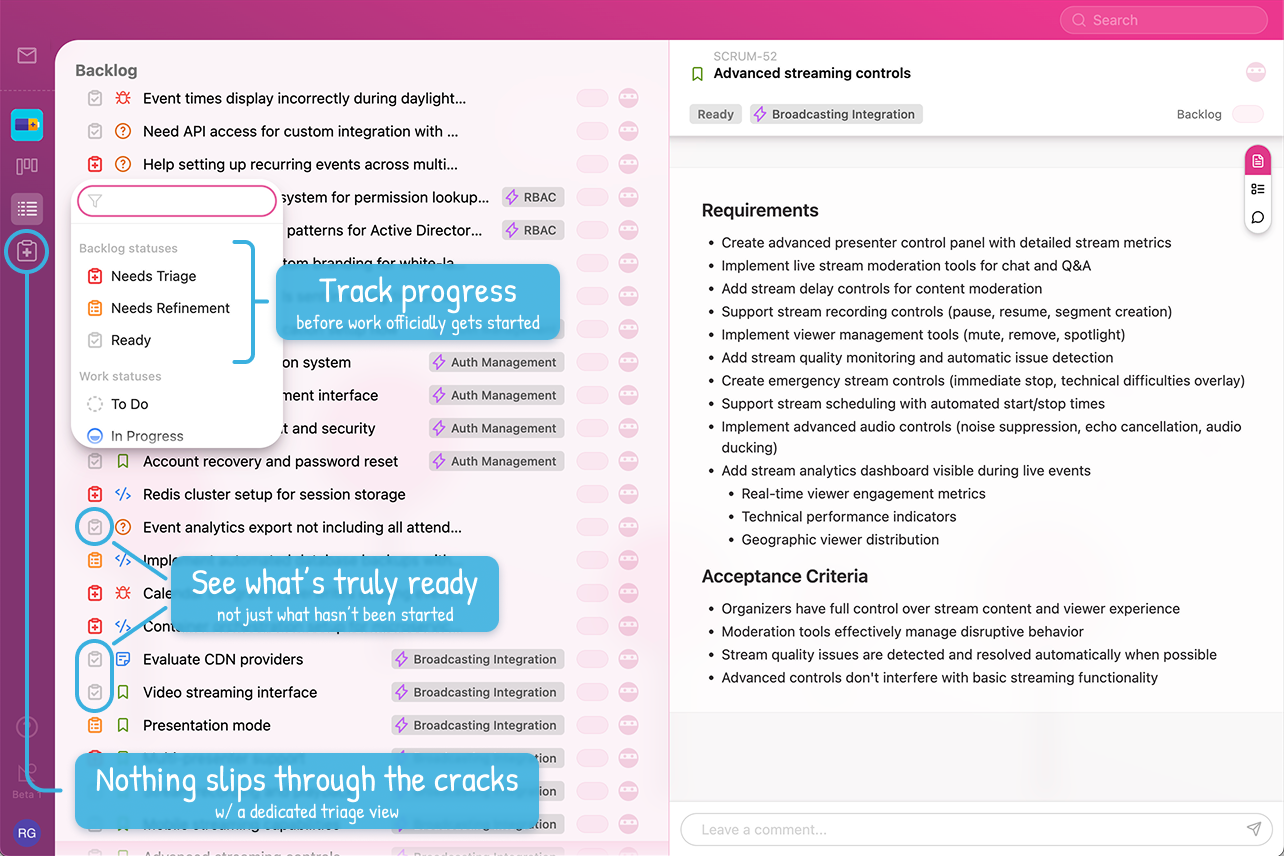
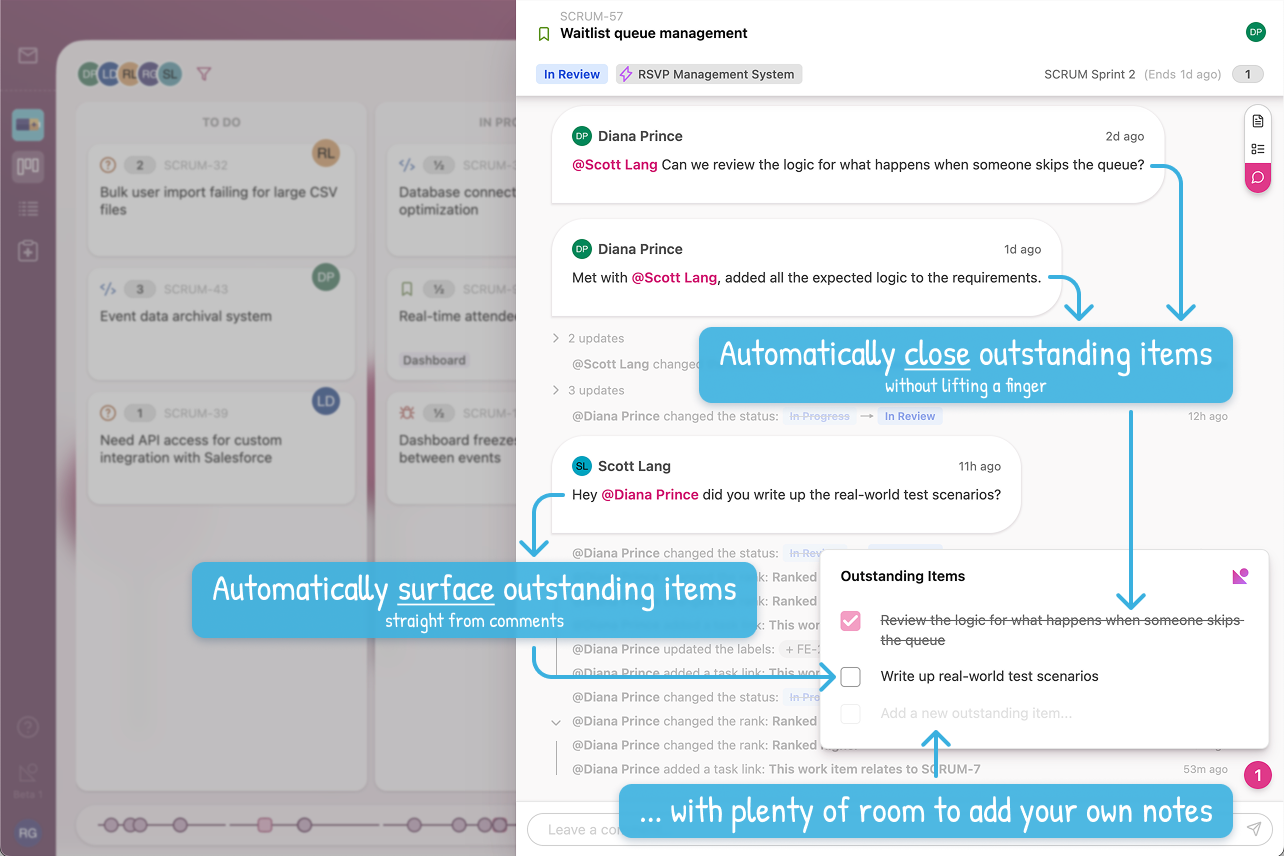
See what changed and what's worth talking about — without needing to dig through memories (or Jira).
Frequently Asked Questions
Everything you need to know about sprint planning and how it works in Momentum.
How does Momentum calculate sprint capacity?
Momentum automatically calculates your team's sprint capacity based on historical velocity from previous sprints. This gives you a data-driven foundation for planning rather than relying on guesswork, helping you commit to realistic sprint goals consistently.
Can I see how points are distributed across my team?
Yes! Momentum shows you point allocation breakdown by assignee, so you can ensure balanced workloads and identify potential bottlenecks before the sprint starts. This visibility helps prevent overcommitting or undercommitting individual team members and ensures a more sustainable planning approach.
Can I see how points are distributed across task types?
Absolutely! Momentum provides a breakdown of points by task type (bugs, features, technical debt, etc.), so you can ensure your sprint has a healthy mix of work. This helps you balance new feature development with maintenance, bug fixes, and other priorities.
What if I don't use story points?
No problem! If your team doesn't use story points, Momentum automatically displays task counts instead. The capacity planning and distribution visualizations work the same way - you'll see how many tasks each team member is assigned and the breakdown by task type, just without the point values.
How does sprint planning connect to my backlog?
Sprint planning in Momentum pulls directly from your prioritized backlog, bringing in all task estimates, details, and additional context. No more manual copy-pasting into spreadsheets or losing important information in translation. Your backlog grooming and estimation work flows seamlessly into sprint planning, maintaining full traceability.
What if my team's velocity changes between sprints?
Momentum tracks velocity trends over time and adjusts capacity recommendations based on recent performance. If your team's velocity is increasing or decreasing, the system adapts to provide more accurate planning guidance. You can also manually adjust sprint targets when necessary.
What if the system gets the sprint target wrong?
No worries! While Momentum's calculations are based on historical data, you always have the final say. You can manually adjust the sprint target at any time to reflect factors the system might not know about.
How does Momentum know who to include in the visualizations?
Momentum only includes team members assigned work in the sprint. In other words, the "per assignee" breakdown only breaks down work when there's data to break down!
How does Momentum know which task types to include in the visualizations?
Momentum only shows task types of tasks that are included in the sprint. This means the "per type" breakdown won't have empty categories cluttering the view!
What happens if we need to change the sprint mid-way?
Once a sprint is in progress, the board view enables you to make whatever modifications you need to - add/remove tasks, reassign work, change statuses, etc. The system tracks all these changes and displays them as updates on cards when timeline mode is enabled at the bottom of the board.
How does this compare to planning in Jira or other tools?
Unlike tools that require manual capacity calculations and point tracking in spreadsheets, Momentum automates the mathematical heavy lifting while keeping the planning process collaborative and transparent. Everything from backlog refinement to estimation to planning to execution happens in one connected workflow, eliminating context switching and data inconsistencies.
Ready to plan with confidence instead of spreadsheets?
No credit card required • Free during beta • Setup in under 5 minutes